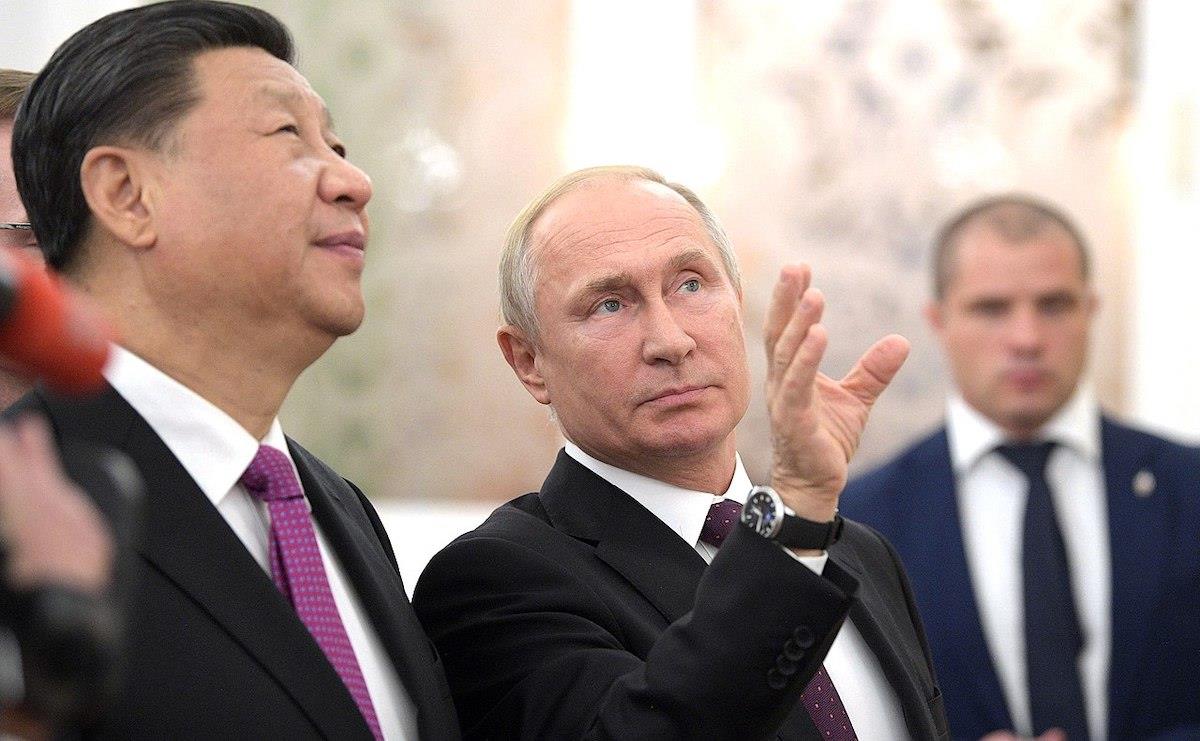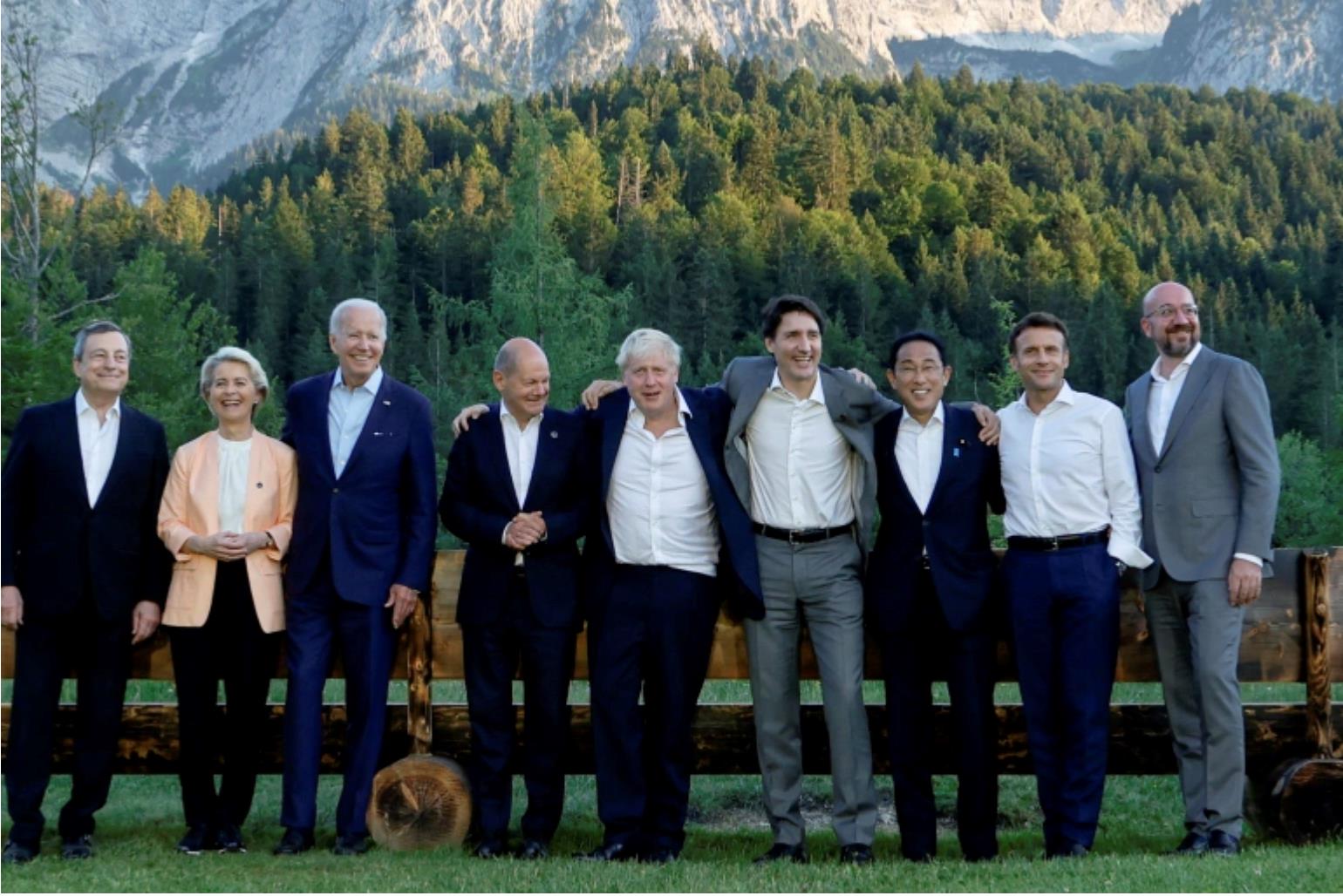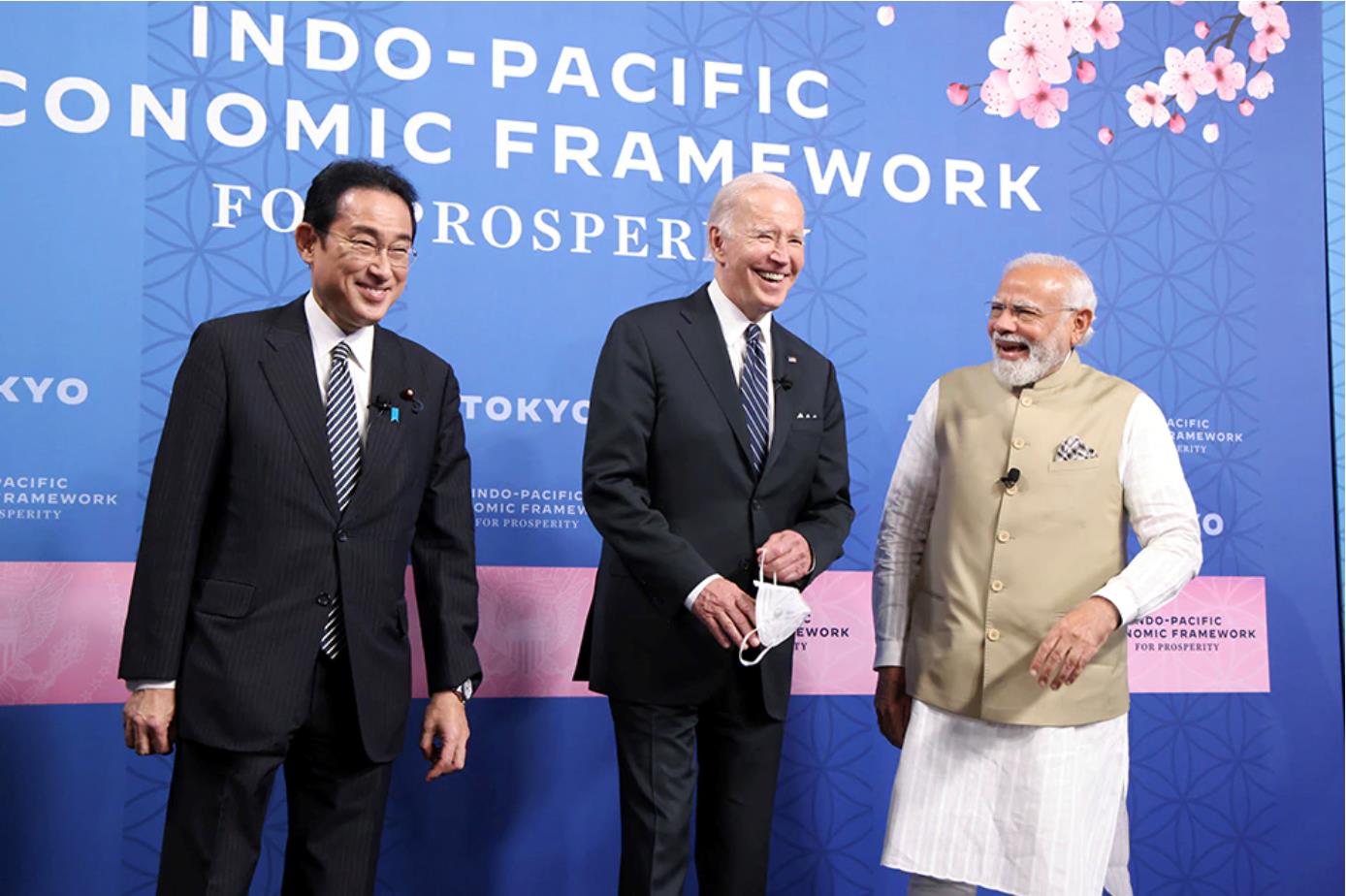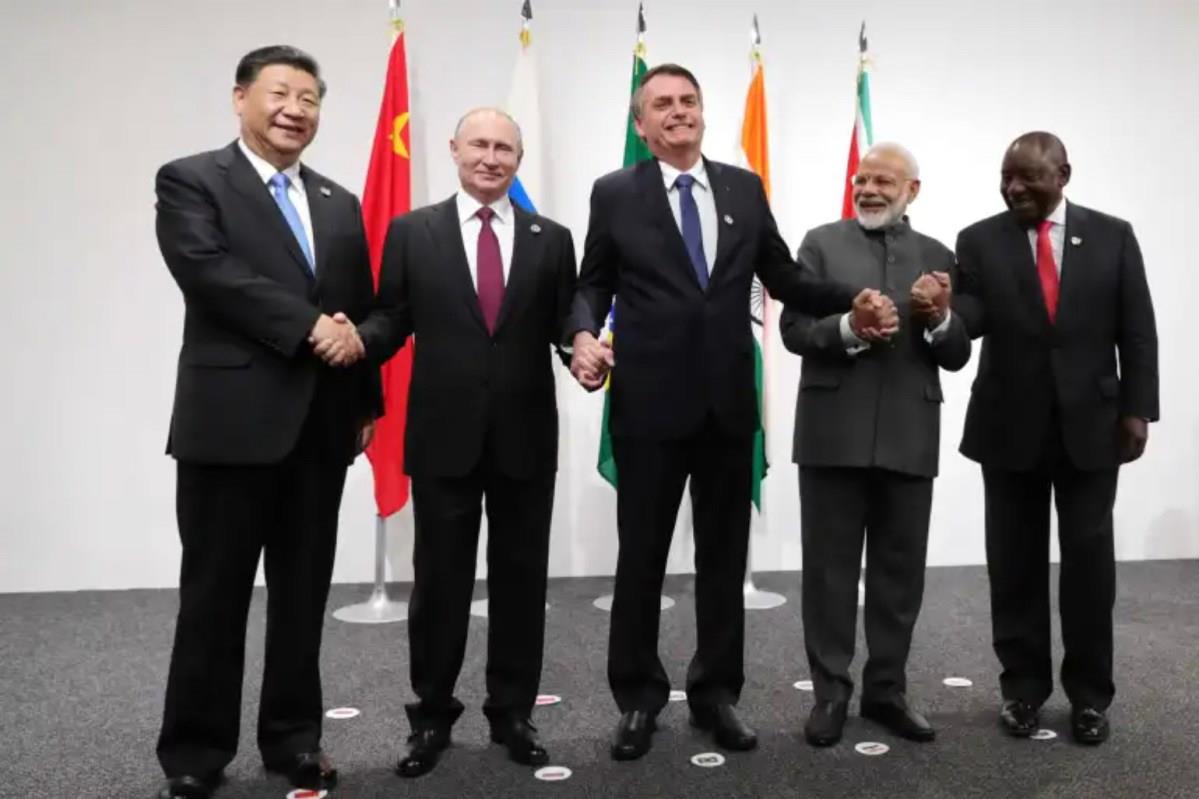
Dissecting The New Cold War's Rival Blocs
The United States and China corralled their allies for major summits in recent days, sounding an eerie echo of Cold War-era rival blocs.
On his part, US President Joseph Biden met fellow G7 leaders in Schloss Elmau in southern Germany, where they discussed shared strategic concerns over both Russia and China. Collectively, the seven leading Western nations pledged up to $600 billion to counter China's Belt and Road Initiative (BRI) in the developing world.
The US president made it clear that the just-launched“Partnership for Global Infrastructure and Investment” initiative isn't“aid or charity”, but instead represents a strategic investment so that developing nations see the“concrete benefits of partnering with democracies.”
European Commission President Ursula von der Leyen echoed Washington's ideological line by arguing that the new initiative shows how“Democracies, when they work together, provide the single best path to deliver results for our people and people all over the world.”
On the other side of the divide, China hosted a virtual summit of BRICS (Brazil, Russia, India, China, South Africa) nations, where President Xi Jinping pledged massive investment in South-South Cooperation and called on fellow emerging powers to“support each other on issues concerning core interests” and“reject hegemony, bullying and division.”
In a thinly-veiled swipe at Western powers, Xi criticized“attempt[s] to expand military alliances to seek absolute security, stoke bloc-based confrontation by coercing other countries into picking sides, and pursue unilateral dominance at the expense of others' rights and interests.”
In a more than 7,300-word joint statement, the so-called Beijing Declaration the BRICS powers effectively called for a new global order that better reflects the interests of emerging nations.
Facing a barrage of sanctions over its invasion of Ukraine, Russia embraced the event as an opportunity to push back against the West and, accordingly, welcomed the potential membership of like-minded powers such as Iran to the power grouping.

Xi Jinping and Vladimir Putin have a vision for BRICS. Photo: WikiCommons
China also invited as many as 13 other developing nations , including Algeria, Argentina, Egypt, Indonesia, Kazakhstan, Ethiopia, Malaysia and Thailand to BRICS-related events in a bid to project a united front against the West.
On closer examination, however, it's clear that the G7 grouping isn't as relevant or powerful as it used to be, nor is the BRICS a coherent and unified power bloc.
By and large, European nations are divided over how far they're willing to join an enfeebled America against a resurgent China while emerging powers such as India are mainly interested in enhancing their own voice in the existing international system.
During the previous Cold War, Washington and Moscow, both in possession of thousands of nuclear warheads, rarely competed directly but instead used proxies in the post-colonial world and rival blocs , namely the North Atlantic Treaty Organization (NATO) and the Warsaw Pact.
The collapse of the Soviet Union, however, ushered in what conservative pundit Charles Krauthammer described as“the unipolar moment”, where“[t]he center of world power is the unchallenged superpower, the United States, attended by its Western allies.”
Academic Francis Fukuyama went a step further by arguing that geopolitics had arrived at“The End of History”, namely the definitive victory of capitalist democracy as the ultimate form of social organization.
It didn't take long, however, before imperial hubris undermined America's“hyperpower” status , especially following the George W Bush administration's neo-conservative-driven destructive interventions in the Middle East.
In fact, the 2000s were a golden era for non-Western powers. Between 2000 and 2005, gross capital inflows into emerging markets rose by 92%, an impressive figure that underwent a five-fold increase in the next half-a-decade.
As investments poured in, and manufacturing and commodity exports boomed, emerging economies doubled their share of global gross domestic product (GDP) in just over a decade.
In recognition of the rapid re-emergence of non-Western nations, Wall Street gurus such as Goldman Sachs Asset Management's Jim O'Neill began to talk up the so-called“BRIC” nations namely Brazil, Russia, India, and China.
What began as a catchy phrase among investors soon turned into an actual geopolitical grouping, with Russia hosting the first BRIC Summit in 2009. Later, South Africa, another major emerging economy, was added to the grouping, which now enjoyed globe-spanning membership.
With prominent pundits such as Fareed Zakaria now speaking of a“post-American world” , G7 nations decided to team up with emerging powers to create the G20 grouping, which includes BRICS nations as well as Mexico, Turkey, Indonesia and Argentina.

G7's fading power: From left to right, Italian Prime Minister Mario Draghi, European Commission President Ursula von der Leyen, US President Joe Biden, German Chancellor Olaf Scholz, British Prime Minister Boris Johnson, Canadian Prime Minister Justin Trudeau, Japanese Prime Minister Fumio Kishida, French President Emmanuel Macron and European Council President Charles Michel pose for a photograph at Bavaria's Schloss Elmau castle, Germany, on June 26, 2022. Photo: Pool / Agencies / Twitter
China, however, sensed a unique opportunity in nurturing the BRICS into a springboard for its global agenda, namely challenging American dominance of the global order.
To this end, China solidified strategic partnerships with fellow BRIC powers such as Russia and Brazil and even established the New Development Bank, formerly the BRICS Development Bank, as part of a burgeoning Beijing-backed international economic system, which also includes the BRI and the Asian Infrastructure Investment Bank (AIIB).
During the latest BRICS summit, China tried to expand the grouping by inviting 13 other leading developing nations including Algeria, Argentina, Egypt, Indonesia, Iran, Kazakhstan, Senegal, Malaysia and Thailand.
As Ni Lexiong, a Shanghai-based Chinese military analyst, put it,“China has tried to strengthen and expand the BRICS to help Russia, counterbalance the West and offset international pressure…”
At the BRICS business forum, Xi accused the West of“[p]politicizing, instrumentalizing and weaponizing the world economy using a dominant position in the global financial system to wantonly impose sanctions will only hurt others as well as hurting oneself, leaving people around the world suffering.”
During the High-level Dialogue on Global Development, the Chinese leader promised to upgrade the“South-South Cooperation Assistance Fund” to a“Global Development and South-South Cooperation Fund” by expanding the initiatives' budget to $4 billion.
Just days later, Russian Foreign Ministry spokeswoman Maria Zakharova announced that leading emerging powers such as Argentina and Iran were also interested in joining the grouping.
“While the White House was thinking about what else to turn off in the world, ban or spoil, Argentina and Iran applied to join the BRICS,” Zakharova wrote on her Telegram account. Still, BRICS powers such as India have fiercely resisted joint efforts by China and Russia to turn the grouping into an anti-Western bloc.
Ahead of the summit in Beijing, Indian officials promised to make sure that“any joint statement out of the summit is neutral and prevent attempts by China and Russia to use the summit to score a propaganda victory against the US and its allies,” according to a Bloomberg report. As a result, the final joint statement ended up extremely watered down, shunning hot button issues altogether.
Wary of China's rise, with which it has longstanding territorial disputes, India has been adamant on maintaining robust strategic relations with the West. Meanwhile, other emerging powers such as Brazil and South Africa, which are facing huge economic troubles, are neither interested in nor have the wherewithal to confront the West.
Both India and South Africa have eagerly welcomed their inclusion in G7 Plus expanded groupings, otherwise known as G11 , which also includes South Korea and Australia.
As Shi Yinhong, an academic based at Beijing's Renmin University, argued,“The split between China and India over border tensions has left the BRICS largely a talking shop even before the Ukraine crisis when it comes to substantial cooperation rather than empty words.”

Japanese Prime Minister Fumio Kishida, US President Joe Biden and Indian Prime Minister Narendra Modi attend a photo session at the launch of the Indo-Pacific Economic Framework (IPEF) in Tokyo, Japan, on May 23, 2022. Photo: Pool
He said the summit ended up“heavy on principles and slogans, but has failed to touch on or offer solutions to those dangerous flashpoints of our time.”
On the other hand, the G7, which has lost much of its global clout in recent decades, is also internally divided on the China question, with Belgian Prime Minister Alexander De Croo openly warning against“turn[ing] our backs to China the way we are turning our backs to Russia.”
As for its $600 billion infrastructure initiative, not only does it pale in comparison with China's spreading global infrastructure footprint, but it's unlikely to make much of a dent in the bigger scheme of things.
After all, the Asian Development Bank (ADB) estimates that developing Asia alone needs up to $26 trillion in infrastructure investment over the next decade.

Legal Disclaimer:
MENAFN provides the
information “as is” without warranty of any kind. We do not accept
any responsibility or liability for the accuracy, content, images,
videos, licenses, completeness, legality, or reliability of the information
contained in this article. If you have any complaints or copyright
issues related to this article, kindly contact the provider above.
















Comments
No comment